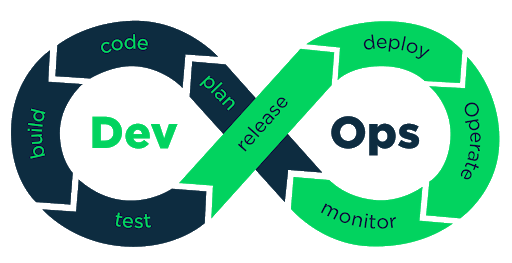There is no denying the fact that DevOps can help you deliver better software faster and more efficiently. In addition to this, it can help you increase your system security in order to build secure software.

In today’s times, almost every organization fears to lose its data. In regards to this, information security and compliance are critical to all businesses when it comes to protecting data against breaches and cybersecurity threats.
Previously, DevOps has been viewed as a risk by information security teams due to its increased velocity of software releases. But now many companies are taking the leap and integrating the practices of DevOps into their processes. These practices have been proven to reduce safety and security problems besides assisting to discover issues faster and address threats more quickly. This has led to the faster adoption of DevOps practices across the world.
Today, companies are considering DevOps as a security concept that enables compliance, security, and audit requirements. With security integration, DevOps has transformed into DevSecOps. A professional DevOps consulting company like Cloud Analogy should be your ideal choice for you to achieve a safe and secure development cycle.
Key Benefits of DevOps
DevOps automation spans the whole pipeline, from code development and testing to infrastructure configuration and deployment.
- Security Integration from the Beginning
In DevOps processes, security can be integrated from the early stages and not only at the end of the software delivery process. This is a necessary requirement if you want to ensure about running a high-quality delivery process.
Just like Continuous integration allows “shifting left” by speeding up debug testing early in the process and improve software quality, the DevOps process can also combine automated security and compliance testing.
2. Quick Fixing of Issues
Security breaches are random incidents but must be taken seriously. In such cases, you just need to take quick actions. With DevOps, you can speed up runtime and build, test, and deploy the updates more quickly.
Moreover, many DevOps platforms allow careful monitoring of all applications, pipelines, and environments that accelerate and simplify your response when you need to release your update.
It’s easier to identify the components that need to be updated if you know exactly which version of the application and which all components in its stack are deployed on a specific environment.
This helps in quickly finding out the component of the application that requires the update, identify the instances that require attention, and quickly release out your updates in a faster, more consistent, and repeatable deployment process.

- Integrate Security throughout the process
Organizations can control the entire development cycle and obtain visibility by using tools that are shared across the different functions (especially with an end-to-end DevOps automation platform that spans development, testing, ops, and security).
It is better with the DevOps automation platform that focuses on the development, testing, operating systems, and end-to-end security. This makes the automatic pipeline a closed-loop process for testing, reporting, and solving security issues.
- Allow One-Click Compliance Reporting
An automated process is an advantage in terms of consistency. Along with predictable results for these tests and actions, this automated process can be automatically logged and recorded.
Since DevOps spans your entire pipeline, it can provide reliable traceability from code change to release. The reliable DevOps system makes auditing process much easier.
If you want to automate everything from building, testing, executing, and deployment, your DevOps automation platform would have access to a lot of information that will be documented automatically. This information serves as a safety log, audit trail, and compliance report that is automatically generated without any manual intervention.
- Developer Efficiency
DevOps emphasizes the importance of streamlining processes across the pipeline. This leads to consistent development, testing, and release practices in a fair and consistent manner. In order to be self-sufficient as a developer, users can configure their DevOps tools and automation while ensuring access control and compliance.
For example, some organizations provide internal DevOps services for Dev/Test cloud with shared workflows, provisioning processes, and storage. This allows developers to access infrastructure while ensuring security measures, access control, security measures, configuration parameters, and approval gates to avoid process inconsistencies.
Conclusion
DevOps is increasingly seen as a security blanket that allows and enforces security, compliance, and audit requirements, making DevOps as a catalyst for information security rather than a threat.
DevOps focuses on creating a culture and an environment in which Dev, QA, Ops, the business itself, and other stakeholders in the organization work together to achieve common goals.
Hire DevOps developers now! Choose Cloud Analogy, the world’s most successful DevOps Implementation Company.

Akshay Dhiman
Chief Technical Officer (CTO)
“Akshay Dhiman, the CTO of Cloud Analogy, has been a standout and successful Salesforce Platform Developer for years. He has a rich experience in Salesforce Integration, JavaScript, APEX, VisualForce, Force.com Sites, Batch Processing, Lightning, PHP, C++, Java, NodeJs, ReactJs, Angular 8, GraphQL, React Native, Web Technology, and jQuery. Known for his problem-solving and debugging skills, Akshay is an out-of-the-box thinker and his capability to understand the business context and translate it into a working model is par excellence. Akshay would not only translate his thoughts into reality but would also bring in his own perspective that is always a tremendous value add. Akshay has the knack of taking challenges head on, equipped with In-depth industry knowledge, Resourcefulness and uncanny nag to build relationship with anyone in shortest time possible. Not only does he possesses fantastic technical depth and awareness but Akshay also complements them with a profound understanding of business functionalities, tools, and methodologies. He has the rare combination of skills and talent that one looks for in Salesforce – attention to detail and the drive for innovation.”

